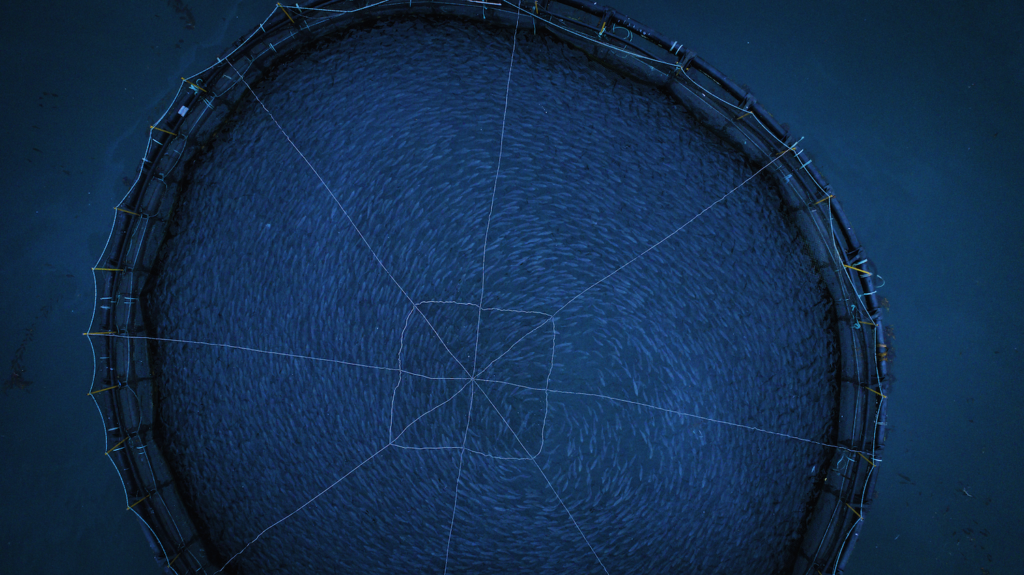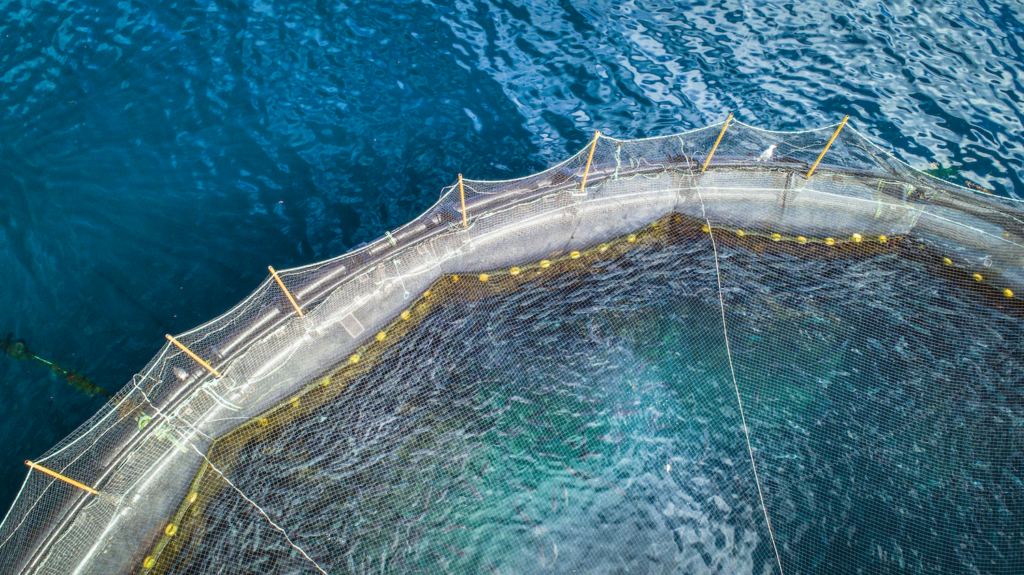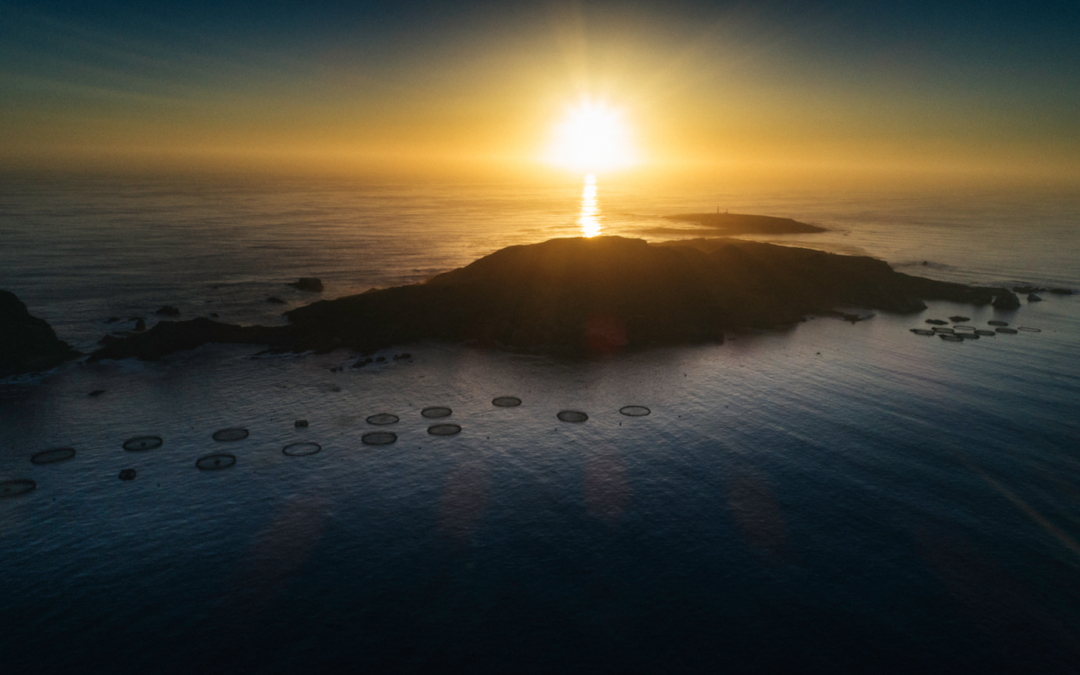Back in 2010, after many years of working in the culinary community, I took my first steps into the world of aquaculture. I remember the excitement I felt as I embarked on this journey. I couldn’t wait to work with aquaculture company leaders, industry, farmers, NGOs, and marketing experts to shift the narrative around a practice that I knew would be essential to the future of food and the health of our oceans. I knew that among kitchens, culinary associations, and food brands, collaboration was pervasive. In fact, it was considered essential to creativity, relevance, and integrity. I assumed I would find a similar community in aquaculture, and that I could plug into it and bring my expertise to the table.
But, there was no table. I couldn’t even find the dining room.
Instead, I found an ocean-scape of producers, farmworkers, NGOs, technology, and regulatory bodies working as though their efforts happened in a vacuum. Usually, different parties were working at cross-purposes. Communication, if it was happening at all, was sparing, and often, defensive. Resentments between major players ran high. And today? They still do.
Yet, I am beginning to see a sea change happening, and, frankly, it can’t happen soon enough. As more of us wake up to how essential healthy oceans are to the survival of our species and the planet, players in the aquaculture industry are starting to recognize that we are all swimming together, whether we like it or not.
Come Together, Right Now
The reality is, if we want to build a thriving future, we are dependent on one another. Technological advancements in aquaculture affect the activities of producers. What producers do affects farm workers, seafood supply, and ocean health. The decisions of regulatory bodies affect everyone. In order to move forward successfully, we have to come to the table together. We have to listen to each other. We have to have challenging discussions. And, most of all, we need to collaborate.
As always, the question is, how do we do this? Collaboration means different things to different people especially when they have seemingly competing interests. Every producer is different. Every species of fish is different. Each business is at a different stage of investment with a different size of production.
We need to create an Aquaculture Council—a collaborative that values individual needs while fostering communication so that we can work together toward a deeply common goal. This collaborative will unlock impactful messaging, showing the outside world our capacity to build a better future so that sustainable, ethical aquaculture can generate well-deserved momentum, respect, value, innovation, and reverence.

The Aquaculture Council Mandate
The Aquaculture Council must be mindful in honoring the distinctive geographical, economic and social features of sustainable ethical aquaculture. It should work with a mandate to establish minimum standards for its members and specifically endeavor to change market perception about the field. This mandate would include:
- Regular market tracking and analysis (markets for species, different types of rearing method and by country)
- Creating and processing a database of potential customers
- Reviewing market conditions
- Tracking and conducting promotional activities
- Conducting retrospective and prospective studies on aquaculture perceptions
- Monitoring national policies
- Monitoring economic surveys, studies, and research on the fish and seafood sector carried out by research and development agencies
- Training and support for emerging companies as it relates to marketing and sales
- Collaborating with other entities, NGO’s, and the fishing community in an effort to create meaningful education and dialogue
I propose that this council be formed and housed at a college or university with aquaculture expertise already prioritized in its budget. Here, the Council would have the benefit of academic support and research capabilities. By designating real dollars to an effort led by world-class experts, we can avoid the pitfalls that have plagued the aquaculture industry from the outset. If we believe that aquaculture will help meet looming seafood challenges then we must act like it. The growth of the industry must be guided by rigorous standards and a plan that is active, not reactive, including a marketing framework developed by the best available minds.
Investing in Ourselves
Remember how brilliant, research-based marketing completely changed buyer perception of avocados? We can do the same thing with sustainable aquaculture. If we don’t do this soon, others will, and it won’t be to our benefit. Nor will it help the health of our oceans, which is essential to the long-term survival of the industry.
If aquaculture is truly attracting billions of dollars in investment and utilizing top-notch technology, feed models, and more, then it’s time for us to make an equivalent investment in ourselves. And that means coming together in 2021 as a group, listening to each other, and mapping a path forward that works for all of us. It means collaborating.
At the end of the day, the only way to sit at the table of the Future of Food will be by working together.
If you also feel passionately about the formation of an Aquaculture Council, please drop me a line.


